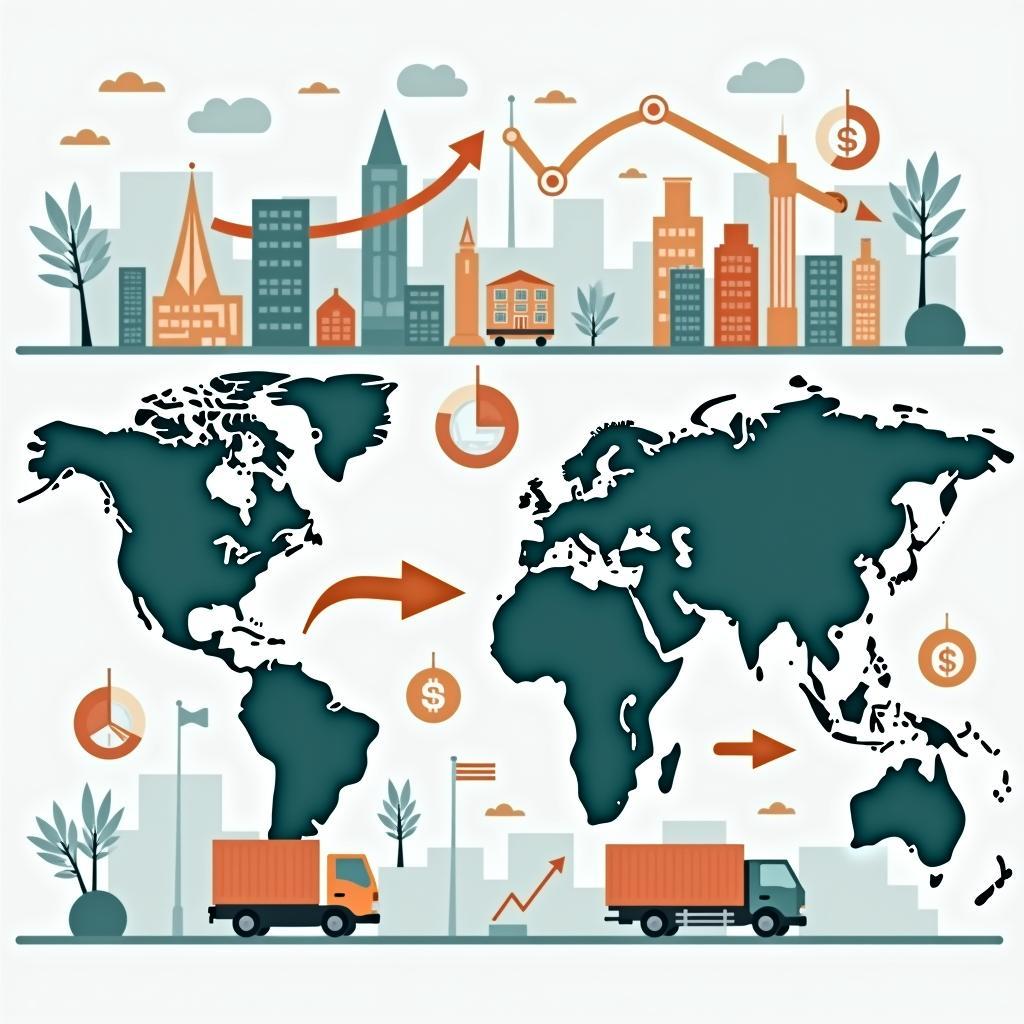International trade and its effects on developing economies is a recurring theme in IELTS Writing Task 2, appearing approximately every 4-6 months in recent years. Based on analysis of past papers and current global economic trends, this topic’s frequency is likely to increase, particularly given its relevance to global economic development and sustainability.
How renewable energy affects global trade has become increasingly intertwined with international trade discussions, making it essential for IELTS candidates to understand these interconnected themes.
Sample Question Analysis
Some people believe that international trade between developed and developing nations helps reduce poverty in poorer countries. Others argue it mainly benefits wealthy nations. Discuss both views and give your own opinion.
This question requires candidates to:
- Examine both perspectives on international trade
- Evaluate impacts on both developed and developing nations
- Present and justify a personal stance
- Provide relevant examples and evidence

Band 9 Sample Essay
International commerce between affluent and developing nations has generated considerable debate regarding its effectiveness in poverty alleviation. While some assert that such trade relationships primarily advantage wealthy countries, I believe that, when properly managed, international trade significantly benefits developing economies.
Those who argue that international trade favors developed nations often point to several compelling factors. Wealthy countries, with their advanced infrastructure and established industries, can dominate trade relationships and dictate terms that primarily serve their interests. Furthermore, how globalization affects financial markets often results in developing nations becoming overly dependent on exports of raw materials, potentially hindering their industrial development.
However, evidence suggests that international trade can substantially benefit developing economies. When poorer nations engage in global trade, they gain access to vital technology transfer, foreign investment, and expanded market opportunities. For instance, Vietnam’s integration into global trade networks has led to remarkable poverty reduction, with its poverty rate declining from 70% to below 6% over three decades. Similarly, impact of global trade on currency value has helped many developing nations stabilize their economies and build foreign exchange reserves.
In my view, while challenges exist, the benefits of international trade for developing nations outweigh the drawbacks. The key lies in implementing appropriate policies and safeguards to ensure fair trade practices. Developing countries must focus on building competitive advantages while protecting vulnerable sectors of their economies.
(290 words)
Band 6.5 Sample Essay
Many people have different opinions about international trade between rich and poor countries. Some think it helps poor countries get better, but others say only rich countries get benefits. I think both sides have good points, but international trade is mostly good for poor countries.
First, international trade can help poor countries make more money. When they sell their products to rich countries, they can earn foreign currency and create jobs for their people. Also, how exchange rates affect imports shows that trade can help poor countries buy important things they need, like machines and medicine.
However, some people think rich countries get more benefits. They say rich countries have better technology and can make cheaper products, which makes it hard for poor countries to compete. Also, poor countries sometimes have to sell their raw materials at low prices.
In my opinion, international trade is good for poor countries if they do it carefully. They should make good rules about trade and try to make better products. For example, countries like Malaysia have become richer because of trade with other countries.
(146 words)
Key Vocabulary
- affluent (adj.) /ˈæfluənt/ – wealthy, rich
- alleviation (n.) /əˌliːviˈeɪʃn/ – reduction of pain or hardship
- infrastructure (n.) /ˈɪnfrəstrʌktʃər/ – basic physical systems of a country
- integration (n.) /ˌɪntɪˈɡreɪʃn/ – process of combining with something else
- competitive advantage (n.) /kəmˈpetətɪv ədˈvæntɪdʒ/ – condition that puts a company in a favorable position
Practice Suggestions
For additional practice, consider writing essays on these related topics:
- The role of technology transfer in international trade
- Effects of trade barriers on developing economies
- Impact of free trade agreements on local industries
Share your practice essays in the comments section below for feedback and discussion with fellow learners.